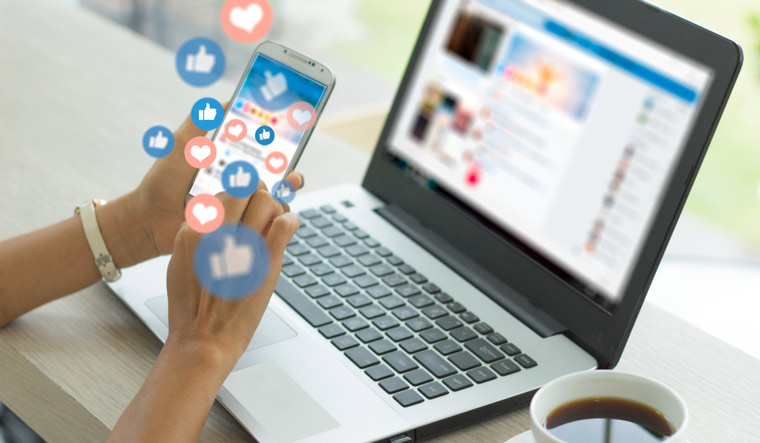Ever since the birth of the first social media platform, MySpace in 2004, the number of people who use social media regularly — many of them multiple times a day, has grown to surpass three billion. This has made social media addiction, a recognised problem like other substance use addictions.
A 2018 study on social media usage published in the Indian Journal of Community Medicine noted that the common health problems associated with social media addiction were strain on eyes, anger and sleep disturbance. Also, among males, smoking, alcohol, and tobacco, consumption of junk food, having ringxiety (phantom cell phone ringing) and selfitis (obsessive-compulsive desire to take photos of oneself) were significant risk factors for social media addiction.
Dr Ruchi Jain, Consultant Psychology, Jaslok Hospital & Research Centre, Mumbai shares her inputs on how to tackle social media addiction
What is social media addiction?
Social media addiction is an unhealthy dependence on interactive platforms. Checking again and again and scrolling through social media is becoming an increasinglyccommon, particularly in the last decade. Although among the majority of people, the use of social media is non-problematic, there is a small percentage of users who become addicted to social networking sites and engage in excessive or compulsive use.
How does social media addiction manifest itself?
As happens in most dependencies, social media addiction manifests as overuse, difficulty in abstaining, and withdrawal symptoms while trying to minimise it. The most alarming effect of such addiction is social isolation.
What causes social media addiction?
The phenomenon can be attributed to the dopamine-inducing social environment that social media sites provide. Dopamine is known as the “feel-good” brain chemical, and it plays a major role in feelings of pleasure, motivation, and satisfaction.
What are some common symptoms of social media addiction?
Common signs include: Excessive amount of time spent on social media; going out of the way to click pictures to post on social media and sometimes not enjoying the moment because of this; constantly checking the number of likes received on one's post or number of views of the story, making it difficult to concentrate on important work at hand; trying to decrease or quit using social media but failing; restlessness; irritability and urge to check again and again or use social media.
How does this addiction impact life and health?
One of the biggest fall-outs is social isolation. For instance, lack or considerable reduction of time spent with friends and family and skipping social events. There is also a loss of interest in former hobbies and; a reduction in workouts and other activities. The constant urge to post on social media leads to poor grades in academics or work performance. If it’s affecting mental health and mental peace, it’s time to sit up and take notice.
How can one get rid of this addiction healthily and practically?
The way we go on a diet to lose weight or for fitness purposes, the same can be applied to social media diet. One who’s addicted can reduce social media usage little by little every day. Just as crash diets are not a good option to lose weight, totally shutting off from social media is also not practically feasible and can cause anxiety. One to two hours before going to bed keep away from social media so that it doesn’t cause anxiety and difficulty in sleeping. It is seen these days that the population in general is busy on their phones while hanging out with friends and even during family outings. More worrisome is that everyone is immersed in their phones during dinners at home or usual family discussions. This unhealthy trend needs to stop. This affects relationships in the long run. Sometimes people keep checking their phones even while driving, this can turn fatal, so please abstain from it. Cultivate more fruitful interests and hobbies or restart from where you left. Try to harbour real interactions Set a time limit for social media usage. It helps a lot to turn off notifications. In my opinion, like any addiction-causing materials, there should be statuary warnings for all social media platforms.


